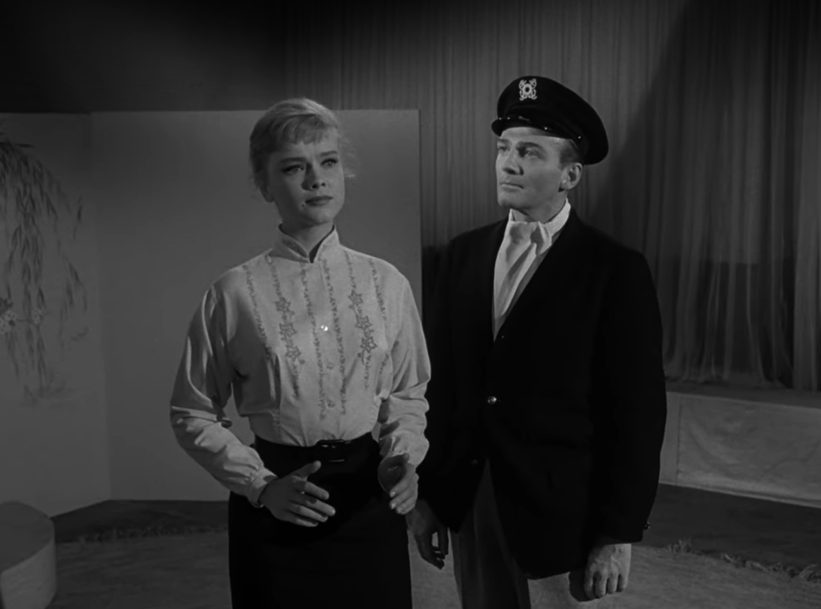Summary:
A woman ends up on a “non-existent” floor of a department store, and she soon remembers that she is a mannequin who had taken a month long vacation from the store, not a regular human.
Bechdel Test:
- Passes!
- There are several women in the show, many of which get real lines
- Most notably, Marsha talks to a saleswoman/fellow mannequin at length about a thimble, how strange everything is, and eventually about her forgotten identity
Gender Roles of Important Characters:
-
Marsha
-
Masculine (3)
- Defends own beliefs, independent, forceful
-
Feminine (4)
- Yielding, cheerful, childlike, does not use harsh language
-
Masculine (3)
-
Manager
-
Masculine (6)
- Defends own beliefs, assertive, forceful, leadership ability, acts as a leader, ambitious
-
Feminine (0)
- NA
-
Masculine (6)
-
Elevator Operator/Mannequin
-
Masculine (2)
- Makes decisions easily, acts as a leader
-
Feminine (4)
- Sympathetic, sensitive to others’ needs, understanding, compassionate
-
Masculine (2)
-
Saleswoman/Mannequin
-
Masculine (3)
- Independent, strong personality, acts as a leader
-
Feminine (7)
- Sympathetic, understanding, compassionate, eager to soothe hurt feelings, tender, does not use harsh language, gentle
-
Masculine (3)
Analysis:
In this episode, most characters had both masculine and feminine traits; however, most of the characters weren’t real, as they were living mannequins. The one real character that was present enough to analyze was the manager, who is a very masculine man. The women are both more feminine than masculine. They are still seen as fake, like something that couldn’t really occur. Similarly, the elevator operator, who is far more feminine than masculine, is also fake.
To me, this points to two things. One, this could reflect an essentialist view, as having traits associated with a different gender made the people not real (women with masculine traits and men with feminine traits were mannequins, not people). Two, this could be saying that people with traditionally feminine traits aren’t really people in the same way that people with masculine traits are. As the people with feminine traits are pretend, living as statues much of the time, they are lesser. If this is the case, it also points to how women are trapped in their roles, as the mannequins have to spend 11 months out of the year living in the store, fulfilling their role as mannequins. Lastly, the episode perpetrates the idea that shopping is for women and any one deep into the shopping experience, like the male mannequin, is feminine.
Shared by: Grace White
Image Credit: The Twilight Zone, CBS via Netflix
